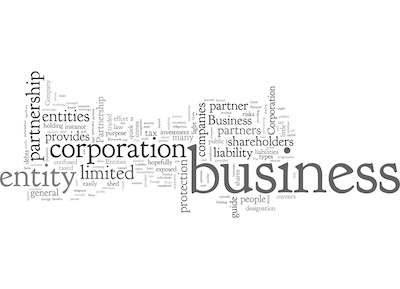Entity Selection & Formation, For-Profit
- June 23, 2020
- Posted by: admin
- Categories:

Business Consultation and Formation
Mitzi E. Sullivan CPA, PLLC offers comprehensive business selection and formation solutions for LLCs, corporations, and partnerships to maximize financial and operational success. When you contract our firm to help you select the entity formation that best suits your business needs, as tax experts, we also assist you in structuring your business with the most effective tax strategy.
Tips for Selecting the Best Entity Formation for Your Business
In general
Sole proprietorships are best suited for single owner entities that do not need liability protection, are not concerned with mitigating self-employment taxes and do not need to raise or accumulate capital. Sole proprietorships have relatively few administrative requirements and are simple and inexpensive to form. Personal assets may be seized to satisfy business obligations or debts.
Partnerships are best suited for multiple owner entities that do notneed liability protection, are not concerned with mitigating self-employment taxes and do not need to raise or accumulate capital. Partnerships have relatively few administrative requirements and are simple and inexpensive to form. Partners may not be employees of the partnership. Personal assets may be seized to satisfy business obligations or debts, and partners are joint and severally liable.
Limited partnerships are best suited for multiple owner entities that do not need liability protection for general partners, are not concerned with mitigating self-employment taxes and do not need to raise or accumulate capital. Partners may not be employees of the partnership. Limited partnerships have relatively few administrative requirements. Assets of general partners may be seized to satisfy business obligations or debts, and general partners are joint and severally liable. Limited partners can not be active participants in the day-to-day operations of the business. An LLC may be created to serve as the general partner. Owners may not claim tax losses in excess of their investments.
The LLC is best suited for entities that need liability protection, are notconcerned with mitigating self-employment taxes and do not need to raise or accumulate capital. The LLC has relatively few administrative requirements. Income is passed through to the members, unless the LLC elects to be taxed as a c-corporation. All members may participate in the day-to-day operations of the business and, typically, assets of members may not be seized to satisfy business obligations or debts. Ownership interests are typically not freely transferable and, in Texas, are not considered attachable property. Owners may claim tax losses in excess of their investments, such as on certain leveraged real estate investments.
The S corporation is best suited for entities that need liability protection, are concerned with mitigating self-employment taxes and do not need to raise or accumulate capital. Entities taxed as an s corp may be able to reduce self-employment taxes by paying owner-employees both salaries and distributions. Ownership interests arefreely transferable and, in Texas, are considered attachable property.
C corporations are best suited for entities that desire to go public, raise capital or accumulate capital for expansion or to service debt. Ownership interests are freely transferable and, in Texas, are considered attachable property.

